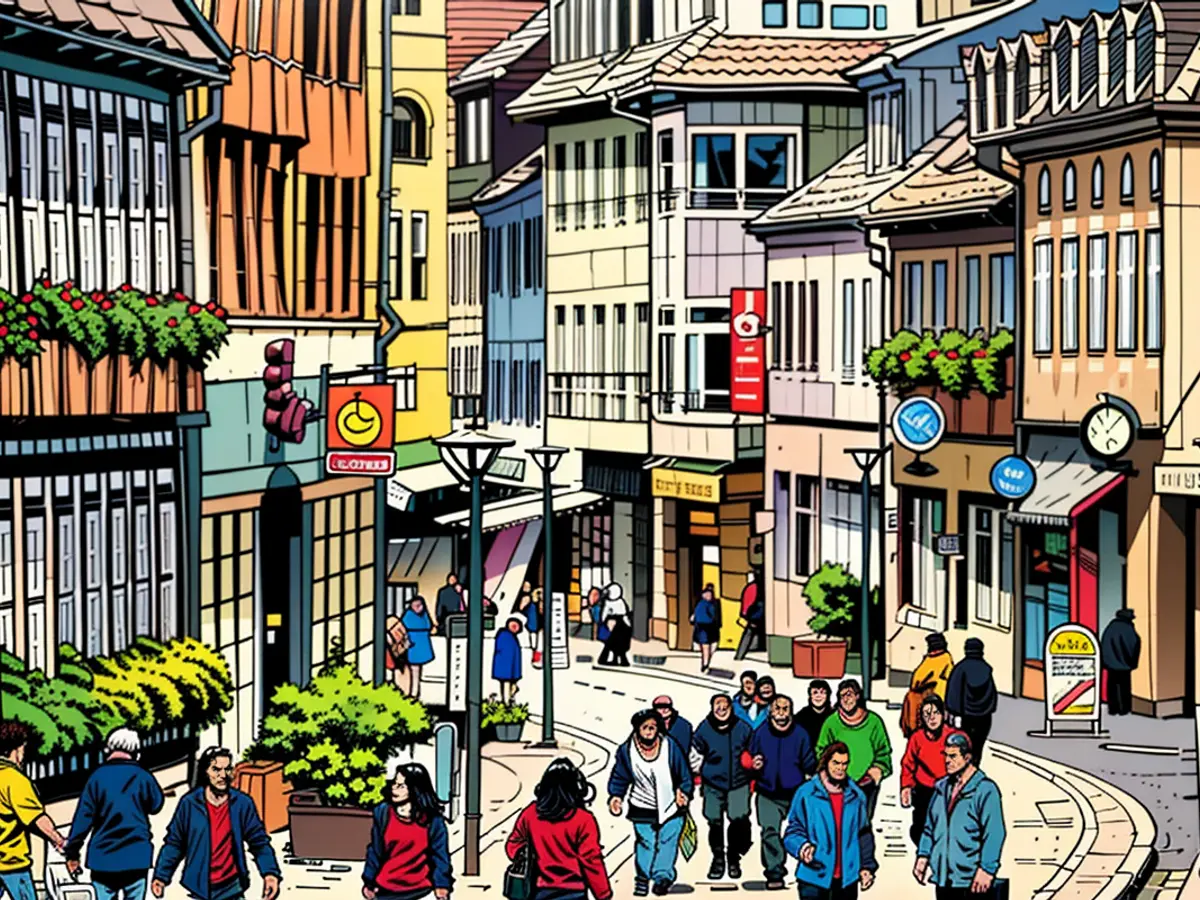Regional planning - Three new regional centers established in Thuringia
Three additional regions in Thuringia have received the status as central hubs. This includes Eisenach, Nordhausen and the central hub Südthüringen, which is made up of the six cities Suhl, Zella-Mehlis, Schleusingen, Oberhof, Meiningen and Schmalkalden, announced the Infrastructure Ministry in Erfurt. Central hubs have important service functions for the region, but also offer leisure activities that are not available in smaller towns.
The three central hubs are part of the revised regional development program, which was approved by the cabinet. In particular, the central hub in Südthüringen had been a long-standing issue.
Number of central hubs doubled
In June, the six municipalities signed a treaty for fair development of the Südthüringer Region. Suhl as a free city has received the status as a central hub together with five other larger and smaller towns, each of which will take on specific tasks within the alliance. Previously, only Erfurt, Jena and Gera had been classified as central hubs.
Now, at least one central hub is located in each of the four Thuringian planning regions, emphasized the ministry. The designation of new central hubs serves to ensure equal living conditions.
Counterbalance to central hubs in Bavaria and Hesse
Infrastructure state secretary Torsten Weil stated, "with the update of the regional development program, we specifically strengthen our rural areas." The goal of the state government in designating a functional central hub in Südthüringen is to create a counterbalance to nearby, easily accessible central hubs on the Bavarian and Hessian side.
Additionally, it was determined that all newly formed communities, which are projected to reach a population of at least approximately 6,000 by 2035, will take on the function of a local center. Therefore, there will be ten new local centers in Thuringia. These are the communities Am Ettersberg, Amt Wachsenburg, Drei Gleichen, Föritztal, Georgenthal, Grammetal, Harztor, Nessetal, Nobitz and Unterwellenborn.
The central hub Südthüringen, located in Southern Thuringia, includes the municipalities of Suhl, Zella-Mehlis, Schleusingen, Oberhof, Meiningen, and Schmalkalden. The city of Eisenach, also in Southern Thuringia, is one of the three additional regions that have been designated as central hubs. The government's decision to double the number of central hubs was part of the revised regional development program, which was approved by the cabinet. The new central hubs in Thuringia, including Eisenach and Südthüringen, aim to create equal living conditions and serve as a counterbalance to nearby hubs in Bavaria and Hesse.








